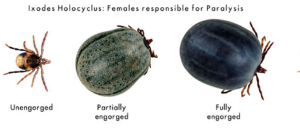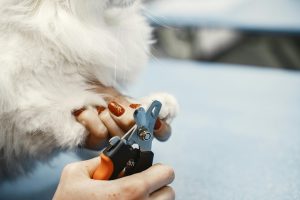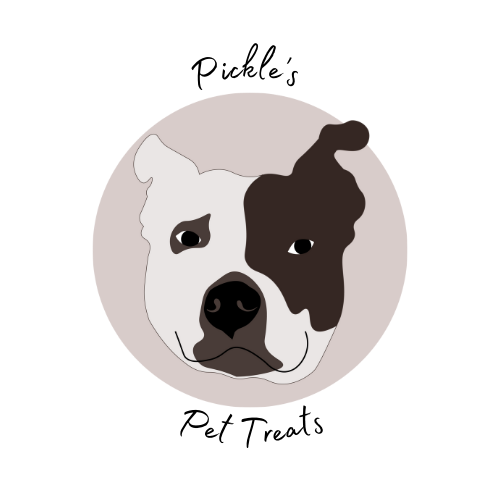Ensuring your furry friends stay healthy and happy is a top priority and your responsibility as a pet owner. Preventative care is essential to avoid common health issues and keep your pets in the best possible condition. This article will cover key aspects of preventative care, including vaccinations, parasite control, and other measures such as nail trims and ear cleaning. We’ll also include information on caring for rabbits, a popular pet in Australia.
Vaccinations
Vaccinations are crucial for protecting your pets from various infectious diseases. In Australia, core vaccines for dogs include those against canine distemper virus, canine adenovirus, and canine parvovirus, commonly known as the C3 vaccine. For cats, core vaccines protect against feline panleukopenia (enteritis) and cat flu, known as the F3 vaccine. Core vaccines are are crucial to your pet’s well-being by protecting them against the most life threatening viruses that can affect their species. Non-core vaccines, such as those for kennel cough in dogs and feline leukemia in cats, may be recommended based on your pet’s lifestyle and risk factors. Kennel cough vaccines are required for boarding in kennels and attending daycare, and the feline leukemia vaccine is recommended for cats that are allowed to roam.
The C2i vaccine for dogs is another important non-core vaccine that protects against canine coronavirus and leptospirosis. Leptospirosis is a bacterial disease that can be contracted from contaminated water or the urine of infected animals, particularly rats. Given the high fatality rate of leptospirosis, it’s crucial to vaccinate dogs that are at risk, especially those in areas with high rat populations or access to standing water.
Core vaccines must be given to puppies and kittens by 6-8 weeks of age, then every 2-4 weeks until 16 weeks of age. Core vaccines should be repeated every 3 years, all others (such as kennel cough) yearly. If there is an outbreak of a viral canine illness in the area, animals that are not fully immunised must be kept at home for 7-14 days.
Rabbits also require vaccinations to protect against Calicivirus from 10 weeks of age (Filavac VHD K C+V), and then Cylap RCD can be used from 2.5-3 months and repeated every 12 months.
Myxomatosis and rabbit haemorrhagic disease (RHD) are also viruses that affect rabbits and can be fatal, however there are no vaccines available. The Australian government periodically releases these viruses purposely to control numbers of wild rabbits, as they are non-native and cause environmental destruction. We will cover more on this topic in the future as a separate article about rabbit health.
Parasite Control
Parasites such as fleas, ticks, and worms can cause significant discomfort and health issues for your pets. In Australia, it’s important to use preventative treatments year-round due to the warm climate that allows parasites to thrive. Regular treatments with products like spot-on treatments, chews, or tablets can help protect your pets from these pests. For areas with warm, humid climates such as the NSW South Coast, it is extremely important to use tick prevention products such as Nexgard or Bravecto. Paralysis ticks are deadly, and kill hundreds of pets every summer – sometimes even into the colder months. Even with treatment, a lot of pets with tick bites will die – so prevention is key.
Wormers must be given to puppies and kittens every 2 weeks from birth until 12 weeks of age, then every month until 6 months of age. Wormers should then be administered every 3 months for life.
For rabbits, parasite control is equally important. Regularly check your rabbit for signs of fleas, mites, and other parasites. Using appropriate treatments and maintaining a clean living environment can help prevent infestations.
Flea & tick products for cats: Revolution Plus (also covers intestinal worms), Bravecto, Nexgard
Flea & tick products for dogs: Bravecto, Nexgard (Nexgard Spectra covers intestinal worms), Simparica
Products for rabbits: Revolution (puppy & kitten – not plus)
Some all-wormers do not cover tapeworms – you may need a seperate dose of a tapeworm specific product such as Popantel.
Nail Trims and Ear Cleaning
Regular nail trims and ear cleaning are essential parts of your pet’s grooming routine. Overgrown nails can cause discomfort, lead to mobility issues, and even curl around and grow into the paw-pad, requiring a vet visit and antibiotics.It is recommended to cut your pet’s nails every few weeks – around a month seems to be the ideal time for most pets.
Dirty ears can result in infections and haematomas, requiring antibiotics and possibly even surgery to correct. Dog breeds with large, floppy ears are at a higher risk of developing ear infections, so regular cleaning is recommended. Other breeds should have their ears cleaned whenever they look dirty. Use a gentle ear cleaner and avoid using q-tips, or take your pet to the vet for an ear clean.
Rabbits also need regular nail trims to prevent overgrowth and related issues. Check their nails every few weeks and trim them carefully to avoid cutting the quick. Rabbits also shed their fur quite a lot so regular brushing is important, and generally well-received.
Additional Preventative Measures
- Dental Care: Regular dental check-ups and cleanings can prevent dental diseases in pets. Brush your pet’s teeth regularly and provide dental chews or toys to help maintain oral health. Check out our article about dental health care for pets here.
- Diet and Exercise: A balanced diet and regular exercise are crucial for maintaining your pet’s overall health. Consult your veterinarian for dietary recommendations if your pet has any health conditions such as renal disease, skin or gut issues or dental issues, and ensure your pet gets enough physical activity. Adding fresh food such as vegetables, eggs, fish and meat to your pet’s kibble is a great way to support their general health.
- Regular Vet Check-ups: Annual veterinary check-ups are essential for early detection of potential health issues. Your vet can provide tailored advice on vaccinations, parasite control, and other preventative measures based on your pet’s needs. Annual blood tests are recommended for pets over 8 years of age to check renal (kidney), liver, and other values to make sure your pet is in good health, and keep on top of any illnesses they may develop as they age. Always see your vet if you suspect something is wrong in between annual checkups.
- Mobile services: Grooming, pet-sitting and other veterinary services are there if you need additional help at home. Pickle’s Pet Care offers a range of mobile pet services by a qualified veterinary nurse.
Desexing
Desexing, also known as spaying or neutering, is a vital part of responsible pet ownership. In Australia, desexing is recommended for both cats and dogs to prevent unwanted litters and reduce the number of animals in shelters. Desexing also offers numerous health benefits, such as reducing the risk of certain cancers and other reproductive diseases. Additionally, desexed pets are less likely to exhibit aggressive or territorial behaviors.
Desexing large breed dogs later, typically between 12-18 months of age, is often recommended because they take longer to reach their full height, weight, and skeletal maturity compared to smaller breeds. Here are some reasons why delaying desexing in large breed dogs can be beneficial:
Joint Health: Early desexing can increase the risk of joint disorders such as hip dysplasia and cruciate ligament disease. Allowing large breed dogs to mature fully before desexing can help reduce these risks.
Growth and Development: Large breed dogs have a longer growth period, and desexing them too early can interfere with their natural growth and development. Waiting until they are fully grown ensures their bones and muscles develop properly.
Hormonal Balance: Hormones play a crucial role in the development of large breed dogs. Delaying desexing allows them to benefit from the natural hormones that contribute to their overall health and well-being.
Reduced Risk of Certain Cancers: Some studies suggest that early desexing may increase the risk of certain cancers, such as osteosarcoma (bone cancer) and hemangiosarcoma (cancer of the blood vessels/spleen). Delaying desexing may help mitigate these risks.
It’s important to discuss the best timing for desexing your large breed dog with your veterinarian, as they can provide personalized advice based on your dog’s specific needs and health status.
For rabbits, desexing is equally important. It helps prevent reproductive cancers and reduces aggressive behaviors, making them more sociable pets.
By following these preventative care measures, you can help ensure your pets lead long, healthy, and happy lives. Remember, your veterinarian is your best resource for advice and guidance on keeping your pets in optimal health.
Pickle’s Pet’s 2024
Written by Brittany Overton, Veterinary Nurse
